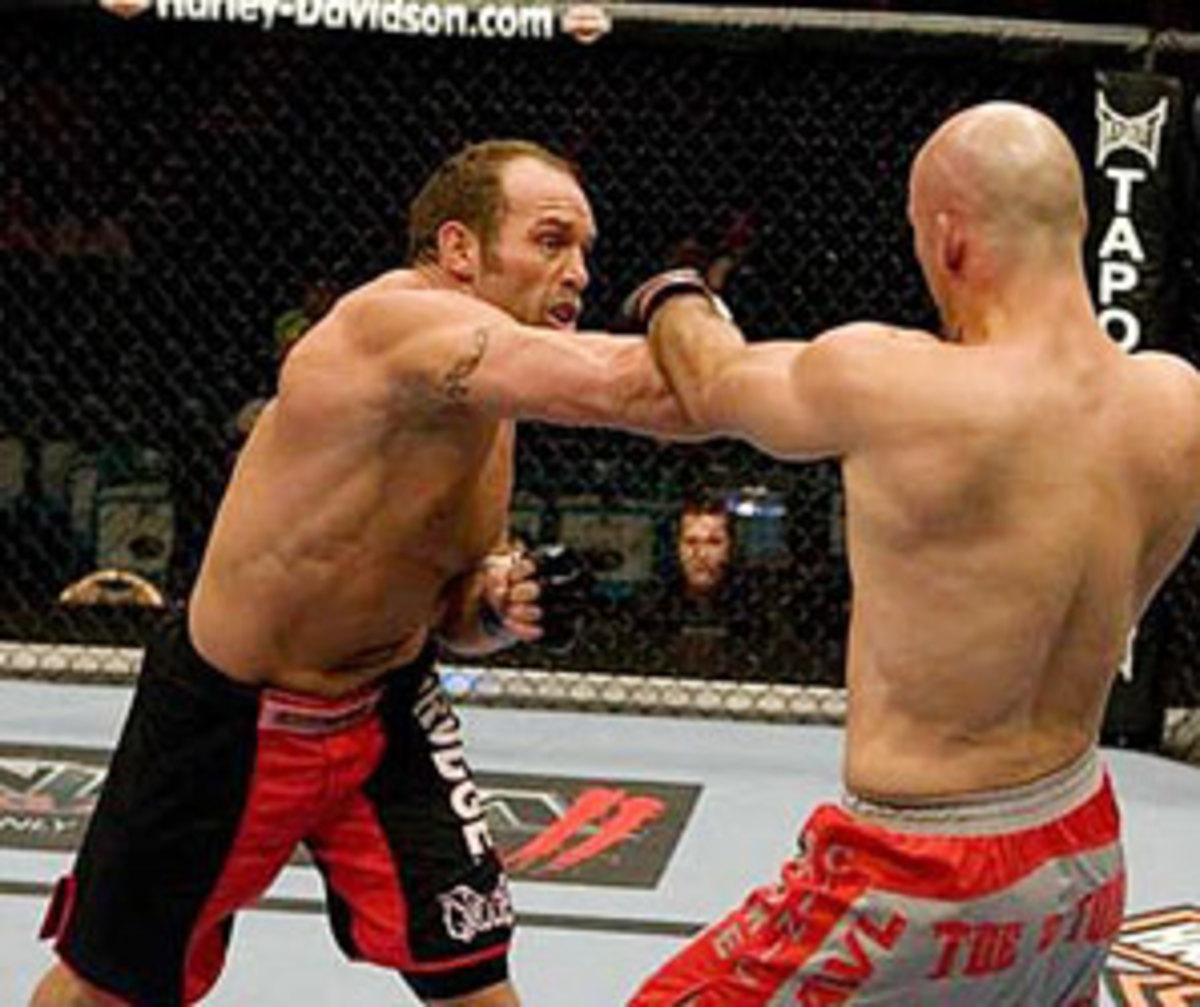
Taming the Octagon jitters
Kenny Florian was just beginning his warm-up routine for his first official UFC bout when he realized he was in trouble.
"I was hitting pads for maybe only 30 seconds, and I was just gassed," he said. "I couldn't believe it. I thought, 'I'm in much better shape than this. Why am I so tired just warming up?' Then all the negative thoughts took over. 'What if I lose in front of all my friends and family? What if I look really bad?'"
Things didn't get much better when the fight actually started.
"My game plan was to pressure Diego [Sanchez] right away," he said. "Somehow I ended up just circling and circling for what felt like five minutes. I could hear my corner saying, OK, Kenny, let's do something here.' The next thing I knew I was mounted and Diego hit me with a shot that hurt me and kind of woke me up. That's when I felt like, okay, I'm in this fight, let's go. By then there was already blood in my eyes and "Big" John [McCarthy] was pulling Diego off me. That was it."
There's a name for this phenomenon: "Octagon jitters." It's when the pressure of performing on the biggest stage in MMA causes a fighter to freeze up. It's been known to turn black belts into white belts and make world-class kickboxers leave their chins wide open. It's why the odds are often against fighters making their UFC debuts, and why many of them find themselves wondering what happened once it's all over.
Florian had heard about the Octagon jitters before, but he had never experienced them.
"Afterwards I was so disappointed in myself and felt like I'd let a lot of people down," he said of his debut fight. "I froze up, and that was way worse than just losing."
But even winning fighters have been known to suffer from the jitters. For UFC light heavyweight champ Rashad Evans it hit him in what was actually his second UFC fight, though it was first time fighting someone he hadn't been housemates with during the filming of The Ultimate Fighter.
"When I fought [Sam] Hoger after I had won the show, I had just dropped down to 205 [pounds], Forrest [Griffin] was doing really good, and I just put a lot of pressure on myself," said Evans. "I spent so much time before thinking about what I wanted to do, and I got tired really fast. I got more mentally exhausted than physically. I had been thinking about it so much, and then when we got in there and had our first exchange I just felt like, 'man, I don't feel like fighting today.' It was weird. I just didn't feel like being in there. I looked over at my corner and thought, 'This is going to be a long fight.'"
The first two rounds of the fight were close, but things seemed to be going Evans' way. As the second frame ended, he found himself struggling trying to get out of a kimura lock, and he knew it didn't look good.
Though Evans would go on to win via split decision, the experience told him that he needed to adjust his mental preparation.
"I just over-thought it," he said. "I put too much pressure on myself. I wore myself out mentally before the fight even started."
Florian remembers having a similar epiphany after his loss to Sanchez.
"It really made me realize the importance of the mental game. I went and read a lot about sports psychology and sports performance after that because I knew that I had to train my mind as well as my body."
But for some, like rising heavyweight contender Shane Carwin, tackling the jitters wasn't as hard. Granted, the near-empty arena helped -- "It was so quiet I could hear everything my corner said," Carwin said. "It was weird." -- but so did a pre-fight regimen of watching visualization and relaxation tapes to calm his nerves.
His first fight, at UFC 84 against Christian Wellisch, lasted less than a minute. Carwin won by knockout.
"I just put absolutely no pressure on myself, and I was really excited to go out there and perform," said Carwin.
Perhaps it's an approach that future UFC first-timers can learn from. But even when you're aware of the problem of the Octagon jitters, said Florian, that doesn't mean you're necessarily prepared for dealing with them. There is, however, one upside to freezing up and turning in a horrible performance your first time in the UFC.
"For me, it made my second UFC fight easier. I knew there was just no way it could get any worse."





